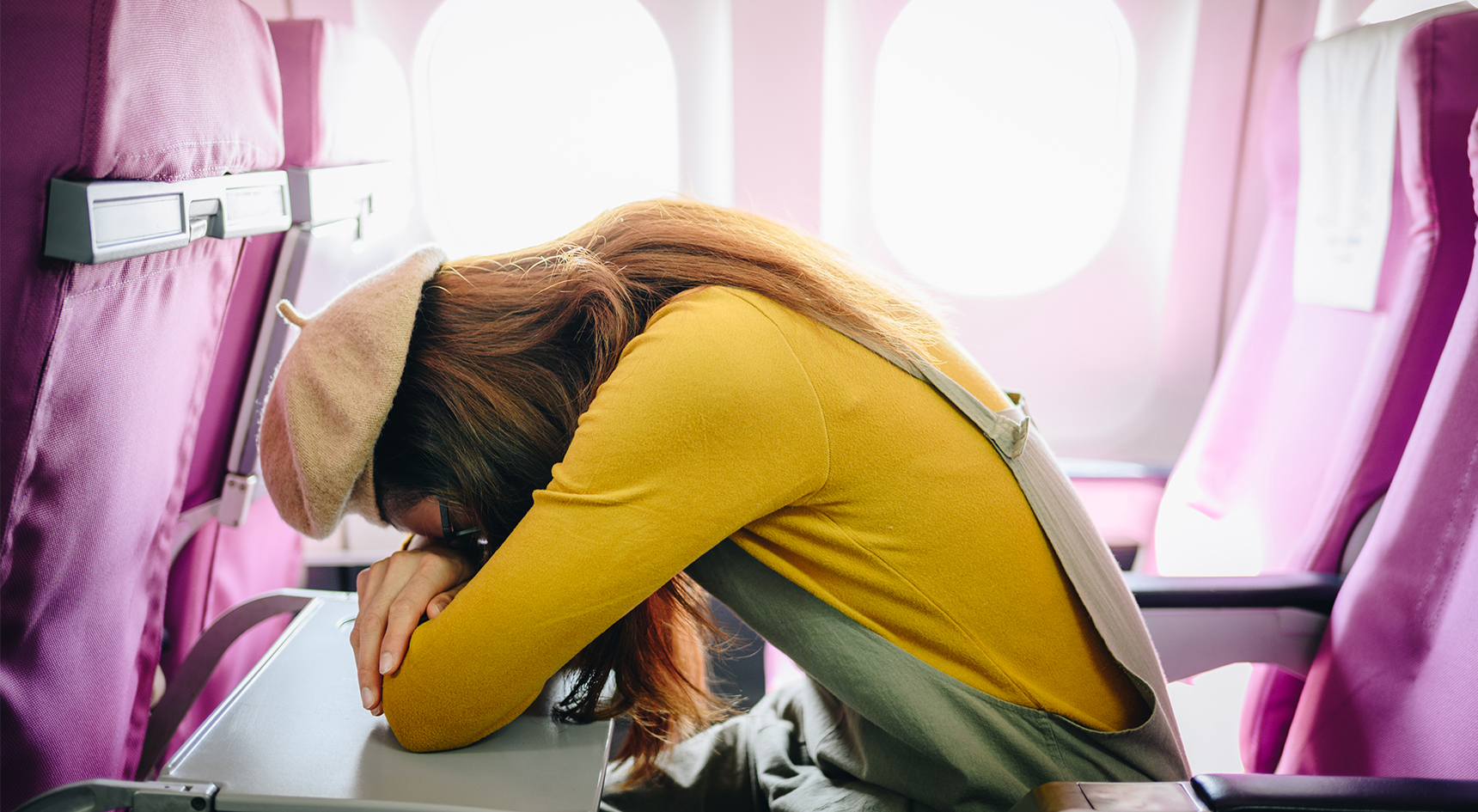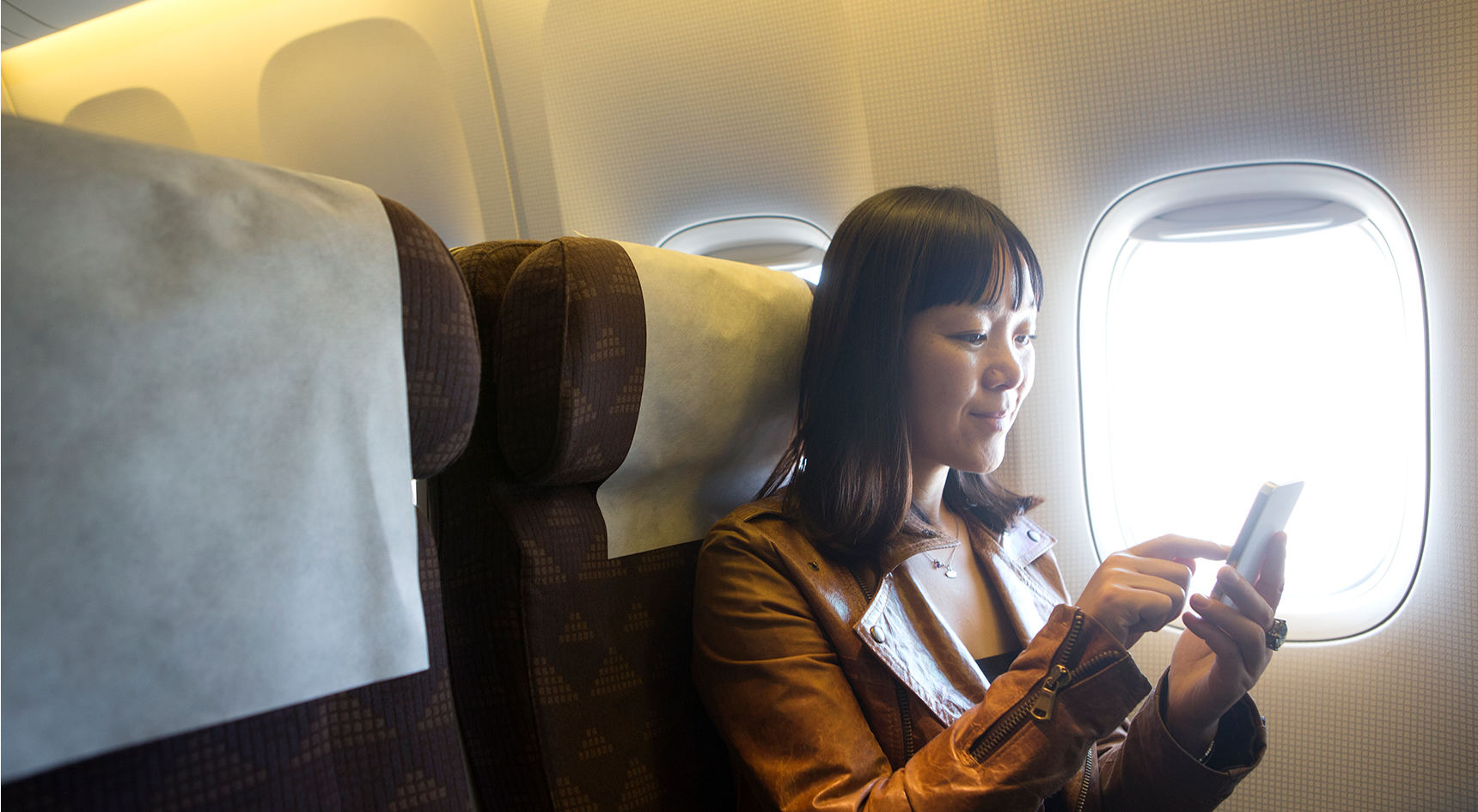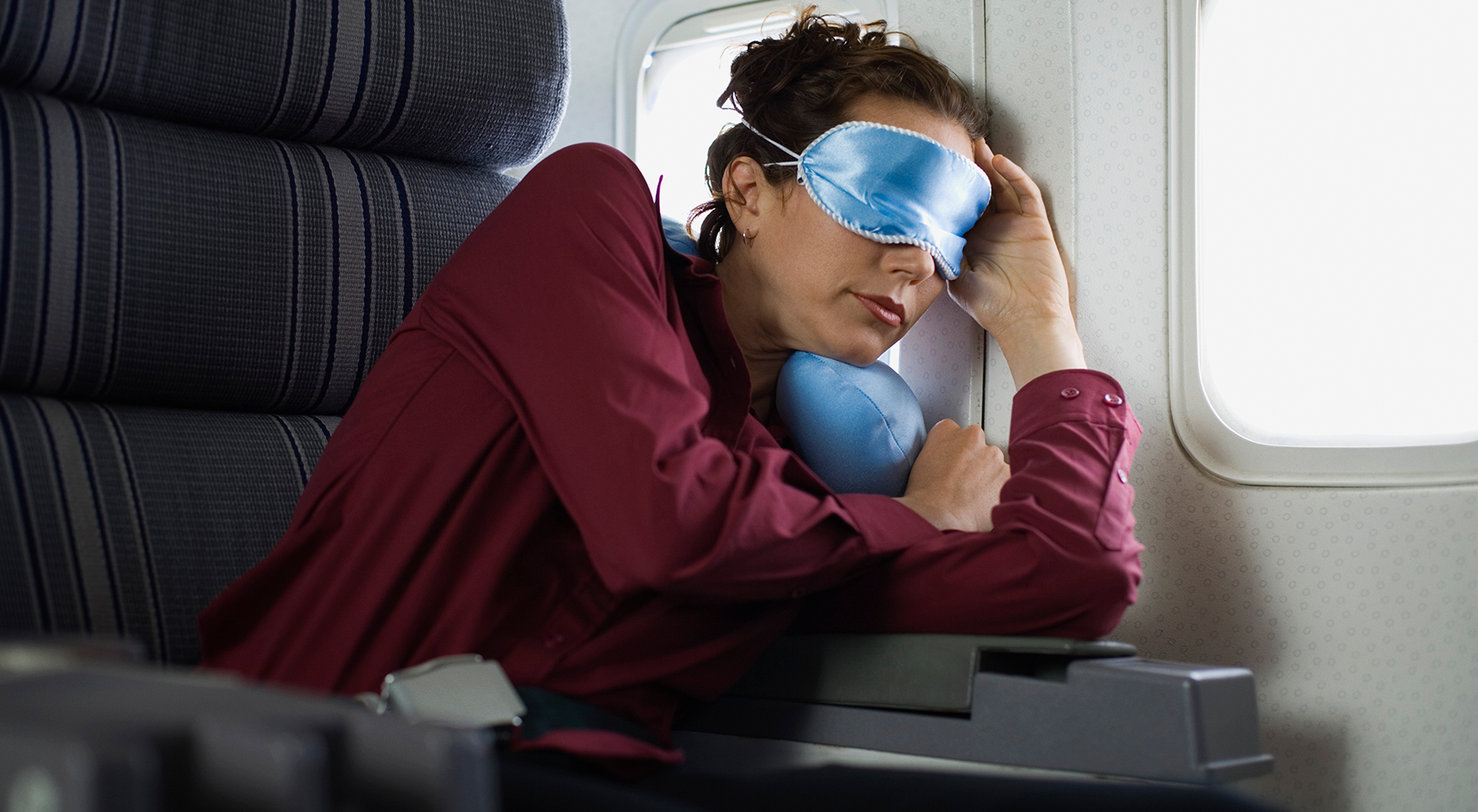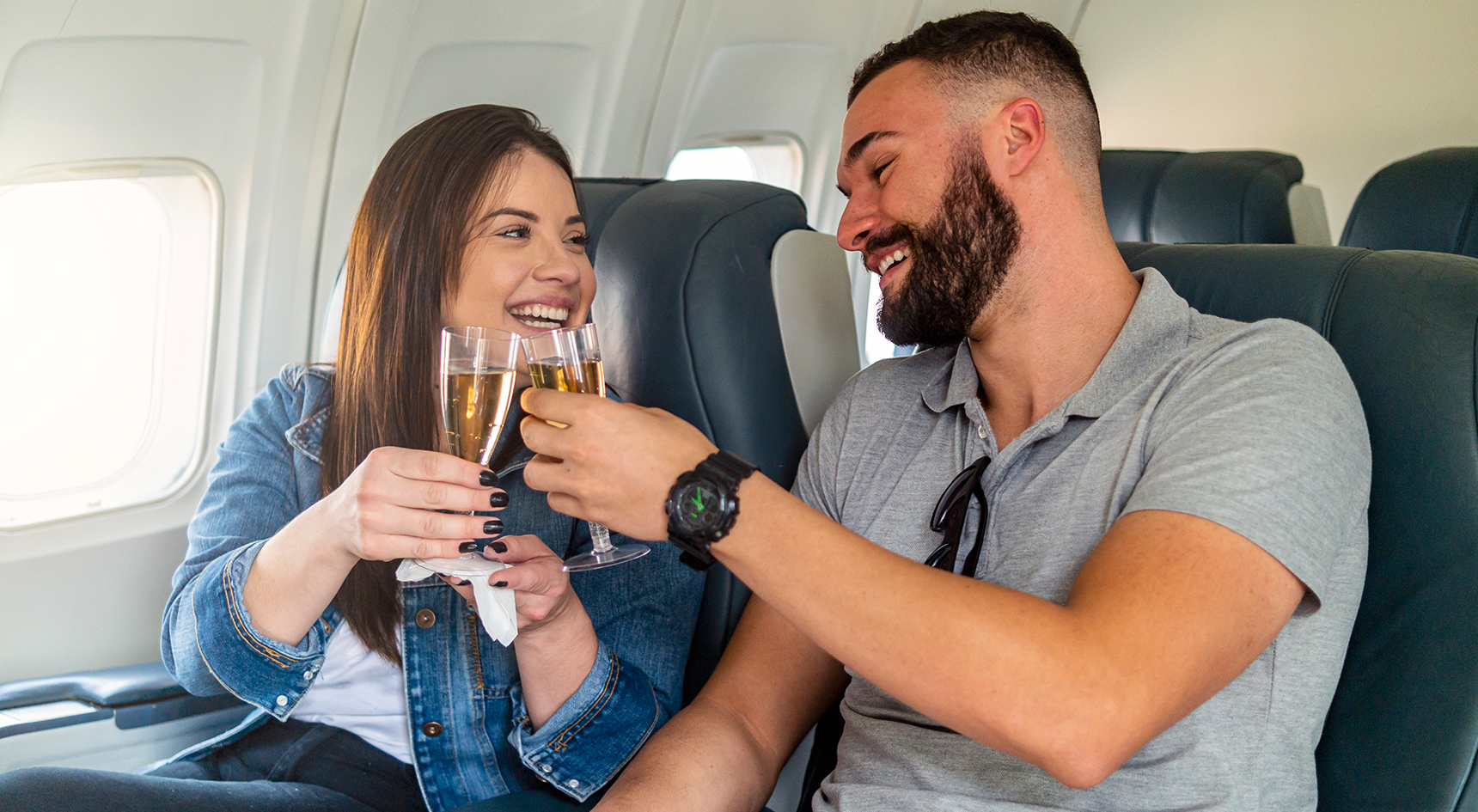By Andrew Rasch
Published: Thursday, September 14, 2023
With the incessant drone, noisy neighbours, and cramped space, you can’t always just close your eyes on a plane and instantly transport yourself to slumberland for eight hours.
In our recent article about avoiding jet lag, one of our top tips was to sleep on the plane when it’s night time at your destination. For some, that’s as simple as propping up a pillow and lying on it (lucky you), while for others it’s a bit trickier. Whichever category you’re in, if you want some kip during your trip, we’re here to help.
1. Get comfy
Internal cabin temperatures can fluctuate during a flight, and unfortunately, you can’t adjust the thermostat like at home. The optimal temperature for restful sleep is between 15C and 19C, so dress in easy-to-remove layers for when the plane cabin is warm and have a blanket and some feet-warming socks within reach for when it’s a bit cooler.

Avoid wearing tummy-squeezing jeans or tight belts on the plane. But don’t forget to keep your seatbelt on when you settle in for some shuteye. Otherwise, expect some sleep-rousing taps from the flight crew if there’s turbulence.
2. Lean up or down?
Our bodies aren’t well-suited to sleeping while upright, so being on a plane puts us at a disadvantage. Don’t cross your legs because it restricts blood flow and increases the chances of blood clots. Instead, stretch your legs out in front with a slight bend in your knees, and keep your personal belongings in the overhead compartment instead of underneath the seat in front to give you more room.
Some research suggests that the ideal sleep position is having your seat leaning back on a 135-degree angle, with your arms on the armrests to support your spine and upper body. Other research recommends leaning forward over the table tray, so use whatever method suits you best. To reduce back pain, place a pillow or rolled-up blanket across the lower seatback and don’t forget to bring a comfortable neck pillow.

3. Use technology wisely
Power down your electronic devices well before you try to sleep because the blue light can shift your circadian rhythms and interrupt your sleep patterns. Although modern planes have variable, ambient lighting to help you sleep, a light-blocking eye mask in your carry-on is a must. Invest in some good-quality noise-cancelling headphones or earbuds, or bring some earplugs if you prefer. As you go to sleep, try listening to some pink noise, where the intensity decreases as the frequency increases. Steady rainfall, a waterfall, or waves on the beach are good examples. Aah, you’re in Langkawi already.

4. Window, middle or aisle?
For most of us, forking out $25,000 per person for a first-class return seat is a tad unrealistic, but there are some more affordable and sleep-friendly economy seat options.
According to The Sleep Judge, some economy seats are better than others when it comes to getting some kip. Book a reclining seat as far to the front as you can. You’ll have a bit more legroom and be less interrupted by the sound of food preparation and people lining up for the bathrooms.
Try to get a window seat on the side you normally sleep at home. In a window seat, you can control the light from the blind, you’ll have something to rest your pillow on, and you won’t have fellow passengers climbing over you.

5. Don’t drink and fly
Avoid alcohol and caffeine. Just as it does when you’re on the ground, alcohol may help you doze off, but it plays havoc with your sleep cycles and reduces your deep sleep. Caffeine will stick around in your system for hours and might make it hard to nod off.
Sipping water throughout the flight is your best option because it’ll refresh and hydrate you and help combat the dry cabin air. Although don’t overdo it if you want to limit your trips to the loo.
As for food, avoid heavy meals and stick to lighter snacks without too many carbs. Have a banana or two because believe it or not, the magnesium and potassium can help you get some restful sleep.

6. Be careful with medicinal remedies
We’re not doctors at sa move, so we suggest speaking to your healthcare professional about whether to take sleeping tablets or supplements. Some people swear by certain sleep medications on the plane, but it’s best to speak with the experts before you board.